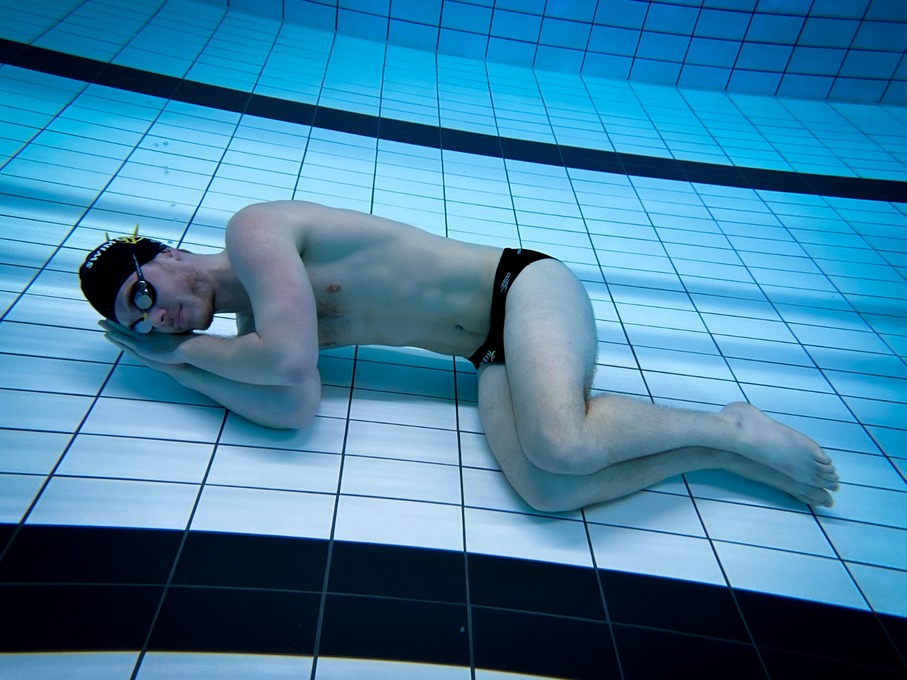Swimming blog - TRAINING 4 Lifestyle Habits To Achieve Greatness
The fastest swimmers in the world don't reach the top by coincidence. They train hard and embrace lifestyle habits that promote excellence. By prioritizing their sleep, nutrition, training and recovery they create the right circumstances to become the best of their generation. Let’s dive a bit deeper into the lives of the greatest athletes, and see what you can learn from them to create a healthier, happier, more energetic and focussed life.
1. Nutrition
First up is nutrition. Professional swimmers burn around 4000-10000 calories each day, depending on the intensity and amount of swimming they do. The legendary Micheal Phelps would eat around 8000-10000 calories on a daily basis to fuel his training sessions, so he could perform at his absolute best. Athlete’s base their meals on the type of exercise they are doing, the intensity, and what they are expecting from their body after eating. Fueling for training and competition is different than fueling for life. The average adult woman expends roughly 1,600 to 2,400 calories per day, and the average adult man uses 2,000 to 3,000 calories per day. In addition, your swim training also needs to be fueled, and depending on the intensity you’ll burn somewhere between 400 to 900 calories per hour.
The fastest swimmers out there are always concerned with their energy balance. How about you keep track of how much energy you're consuming with an app such as MyFitnessPal. Try to fuel your body according to what your day consists of, and whether or not you're having a workout that day. Also spread your meals throughout the day. You’ll start to feel better during your workouts, more focussed at work and more energetic throughout the day.

2. Sleep
To become the best of the very best, professional swimmers don’t only track their nutritional intake but also their sleep. Most of the swimmers are in the pool three to five hours a day, seven days a week. To recover from their workouts they need to pay attention to their sleep quantity and quality. Olympic swimmers will sleep up to twelve hours a day, eight to nine hours at night and then a two to three hour nap between practices.
Twelve hours of sleep is a bit redundant for the average adult, however you should aim to get at least eight hours of sleep at night. Start by making sleep a priority in your schedule. While cutting sleep short may be tempting in the moment, it doesn’t pay off because sleep is essential for being at your best both mentally and physically. It’s best to stick to the same sleep schedule daily. If you cut short on sleep during the night, then schedule some naps in somewhere during the day or over the weekend.

3. Stress
It’s not only sleep but also mental stress which has a big impact on performance. Athletes who are able to effectively reduce mental stress in their life will benefit from better recovery and will have more energy for training. Athletes have personal coping strategies to stress, while Micheal Phelps uses breathing techniques, Katie Ledecky is a fan of journaling, and other athletes make use of meditation.
Whether you’re aware of it or not, you also get affected by mental stress. Maybe it’s due to work, family responsibilities, hectic lives, or the amount of time you spend on your phone being on social media. High levels of stress will impact your ability to concentrate, productivity, sleep, mood, energy levels and happiness. Schedule ten minutes off time daily, no phones, no distractions. In these ten minutes you can just meditate, write in your journal, take a walk in nature, or cuddle with your dog, whatever it is, make sure it's destressing.

4. Training
Last but not least, professional swimmers take their training very seriously. Crazy enough, Micheal Phelps didn’t take a day off from training for a period of five years. He trained for 1825 days in a row, which is insane. He became the best of all time because he was willing to put in the work, even on the day’s he didn’t feel like it. Micheal Phelps took it to the extreme because what he wanted to achieve was extreme. Your goals and ambitions might be way less extreme when it comes to training, or you might not even have sport specific goals. But that's about to change.
Movement should be prioritized if you want to be and feel healthy. You will do your body, your mind, your energy levels, your productivity, your mood and your self esteem a big favor by prioritizing full body movement such as swimming. If you're clueless how to start, find something you enjoy doing and make it fun. If you for instance love swimming then make it more fun by mixing it up every time you go to the pool. You could for instance do the SWOD of the day, or you could engage in one of our courses to keep you more accountable and work towards a specific goal. In addition you have to prioritize and plan your movement, so do it first thing in the morning or schedule it straight after work.

The fastest swimmers achieve greatness because they take these lifestyle habits very seriously and implement them in ways nobody else will. The point we are trying to bring across here isn’t to copy exactly what these professional athletes are doing. But to develop habits that prioritize treating your body and mind the best as you can. You’ll thank us later when you slowly start to feel happier, healthier, and more energetic during swimming!
Written by Saskia Postma

